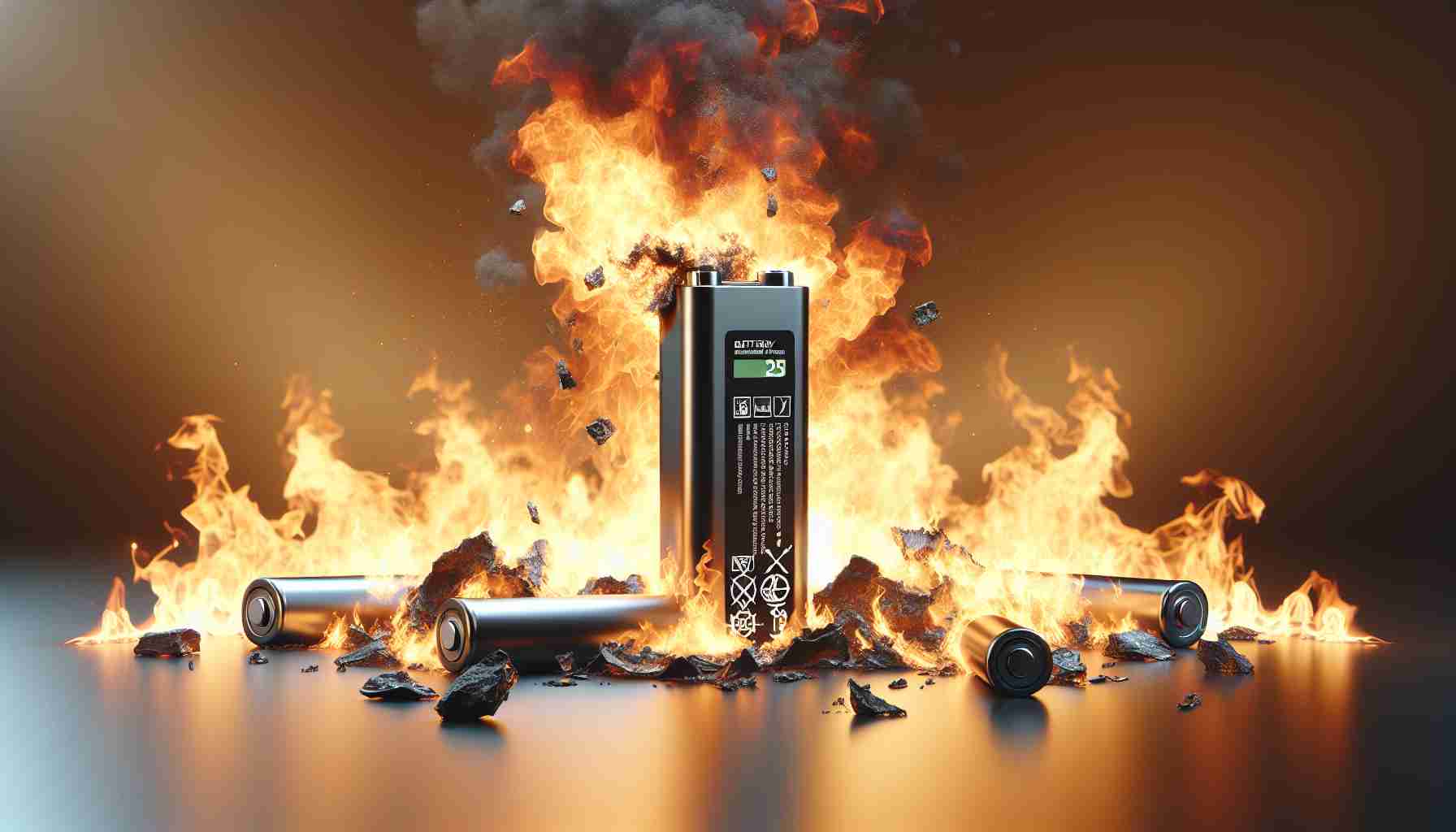The rising popularity of e-bikes and other devices powered by lithium-ion batteries has brought about a concerning increase in fire incidents across the United States. While consumers and cities have eagerly embraced these eco-friendly alternatives, the lack of proper regulation poses a significant risk to public safety. Recent investigations have shed light on this growing problem and questioned how it has been allowed to worsen.
Fires caused by lithium-ion batteries can have devastating consequences, as shown in dramatic footage from incidents in New York City, London, and California. These fires can ignite rapidly, producing sparks and even explosions within mere seconds. Despite warnings from organizations like the UL Fire Safety Research Institute, the number of electric bikes and scooters on the streets continues to rise, outpacing the ability of firefighters to combat the associated fire risks.
In 2022, recognizing the gravity of the situation, the U.S. Consumer Product Safety Commission announced strict measures to address the mounting issue of e-bike fires. Tragically, months later, a fire in a New York City e-bike repair shop claimed four lives and critically injured two others. New York City alone has witnessed 268 lithium-ion battery-related incidents in 2023, leading to 18 fatalities and 150 injuries. These statistics highlight the urgent need for action.
Fire officials across the country are sounding the alarm, emphasizing the importance of consumer education in safe charging practices. Seattle Fire Chief Harold Scoggins has suggested that state and federal laws should be amended to prevent fires. However, without a comprehensive federal database tracking these incidents, the true extent of the problem remains unclear. The lack of standardized regulations for battery safety, storage, and charging continues to put lives and properties at risk.
In response to these challenges, some cities, including San Francisco, are taking matters into their own hands by revising local fire codes to address charging and storage safety. These localized efforts aim to prevent potential disasters and protect entire communities from the devastating consequences of lithium-ion battery fires.
Calls for more aggressive action have resonated with fire officials, members of Congress, and city leaders. However, universal federal action to regulate these batteries and promote safety standards remains elusive. As the public demands greater accountability, it becomes vital to establish clear guidelines, enhance battery safety regulations, and ensure proper oversight to safeguard the well-being of consumers and communities across the nation.
In our upcoming report, we delve further into the urgent need for regulation and speak with the Chair of the Consumer Product Safety Commission (CPSC) to determine if enough is being done to address this critical issue. Stay tuned for our investigation, which will be aired on Thursday, as we aim to shed more light on the path towards ensuring public safety in the face of lithium-ion battery fires.
FAQ:
1. What is the main concern regarding the rising popularity of e-bikes and devices powered by lithium-ion batteries?
The main concern is the increase in fire incidents caused by these batteries, which poses a risk to public safety.
2. How quickly can fires caused by lithium-ion batteries ignite?
Fires can ignite rapidly, producing sparks and even explosions within mere seconds.
3. What measures did the U.S. Consumer Product Safety Commission announce to address the issue of e-bike fires?
The U.S. Consumer Product Safety Commission announced strict measures in 2022 to address the problem of e-bike fires.
4. What recent incident in New York City highlighted the urgency of the situation?
A fire in a New York City e-bike repair shop claimed four lives and critically injured two others, emphasizing the need for action.
5. How many lithium-ion battery-related incidents were reported in New York City in 2023?
In 2023, New York City witnessed 268 lithium-ion battery-related incidents, leading to 18 fatalities and 150 injuries.
6. What is one suggestion made by Seattle Fire Chief Harold Scoggins to prevent fires?
Seattle Fire Chief Harold Scoggins suggests amending state and federal laws to prevent fires.
7. What are some localized efforts being made to address charging and storage safety?
Some cities, including San Francisco, are revising local fire codes to address charging and storage safety.
8. Is there universal federal action to regulate lithium-ion batteries and promote safety standards?
No, universal federal action to regulate these batteries and promote safety standards remains elusive.
9. What is the aim of the upcoming investigation mentioned in the article?
The investigation aims to shed light on the need for regulation and speak with the Chair of the Consumer Product Safety Commission to determine if enough is being done to address the issue of lithium-ion battery fires.
Definitions:
– E-bikes: Electric bicycles that are powered by lithium-ion batteries.
– Lithium-ion batteries: Rechargeable batteries commonly used in electronic devices.
– UL Fire Safety Research Institute: An organization that provides scientific research to improve fire safety.
– U.S. Consumer Product Safety Commission (CPSC): A federal agency responsible for protecting consumers from unreasonable risks of injury or death associated with consumer products.
Related Links:
– cpsc.gov: U.S. Consumer Product Safety Commission website.
– ul.com: UL (Underwriters Laboratories) website.
– seattle.gov/fire: Seattle Fire Department website.
– sanfranciscopolice.org: San Francisco Police Department website.







